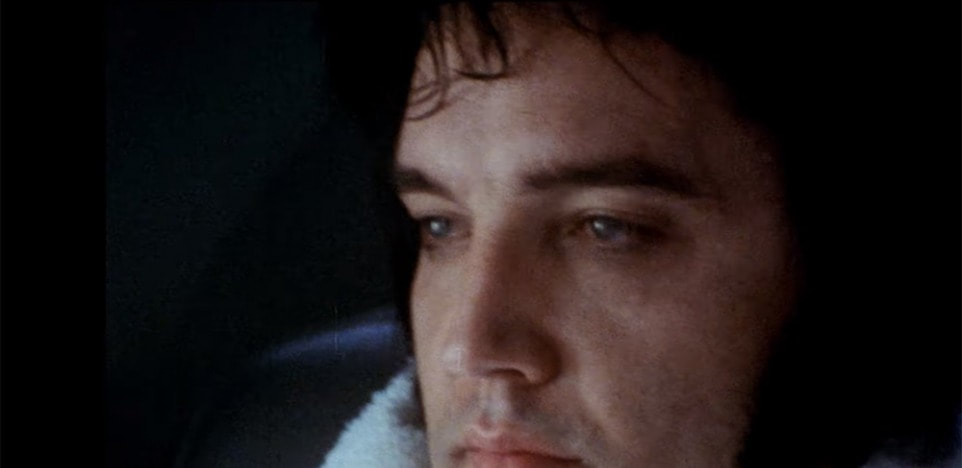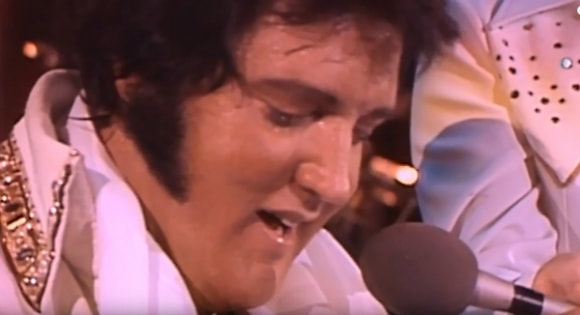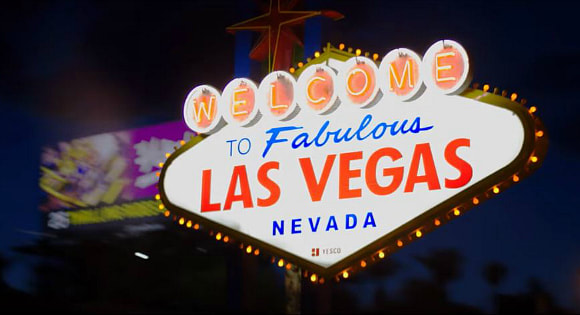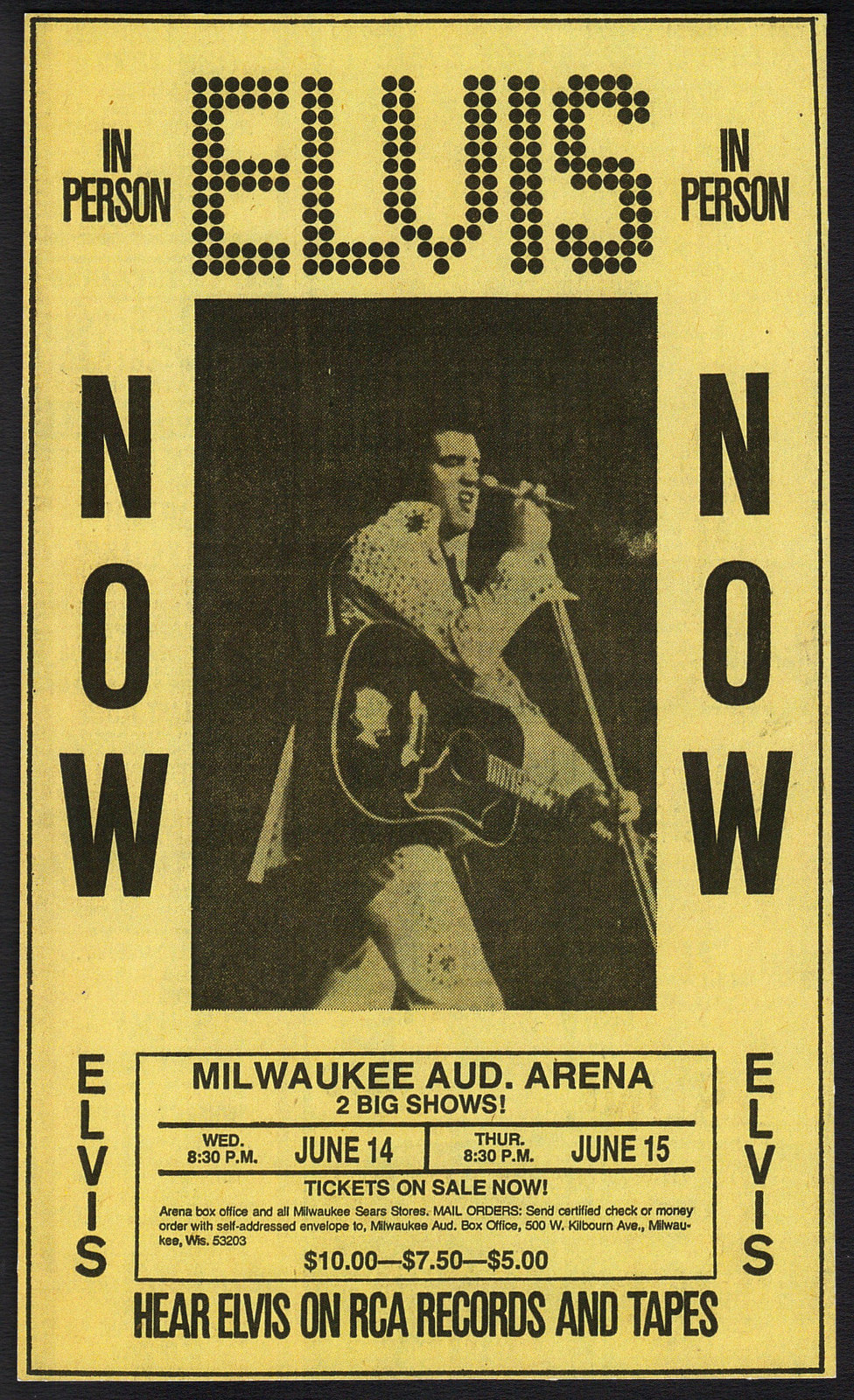The King
Directed by Eugene Jarecki
Documentary about the rise and decline of Elvis Presley
as a metaphor for the rise and decline of America.
Film Review by Frederic and Mary Ann Brussat,
reposted from Spirituality and Practice
"Forty years after the death of Elvis Presley, two-time Sundance Grand Jury winner Eugene Jarecki’s new film takes the King’s 1963 Rolls-Royce on a musical road trip across America. From Memphis to New York, Las Vegas, and beyond, the journey traces the rise and fall of Elvis as a metaphor for the country he left behind. In this groundbreaking film, Jarecki paints a visionary portrait of the state of the American Dream and a penetrating look at how the hell we got here. A diverse cast of Americans, both famous and non, join the journey."
Review by Frederic and Mary Ann Brussat
|
"Journalist Richard Clurman found himself chatting one day in the late 1960s with Leonard Bernstein, the legendary composer and conductor of the New York Philharmonic.
" 'Elvis Presley,' Bernstein said, 'is the greatest cultural force in the 20th century.' Taken aback, Clurman, who recounted the exchange to the writer David Halberstam, offered an alternative: " 'What about Picasso?' Clurman ventured. " 'No, it’s Elvis,' Bernstein insisted. 'He introduced the beat to everything and he changed everything -- music, language, clothes, it’s a whole new social revolution." — from a Time magazine article by John Meacham The film follows Elvis' life journey from his birthplace in Tupelo, Mississippi; to his recording days in Memphis and Nashville, Tennessee; his television appearances in New York City; his service in the U.S. Army; his career in Hollywood movies; and his shows in Las Vegas. Commentary is provided by some of Elvis' friends and associates; actors Ethan Hawke, Alec Baldwin, and Mike Myers; political commentators Van Jones and James Carville; and singers Emmylou Harris, Chuck D, Immortal Technique, M Ward, and other contemporary musicians who have been influenced by Elvis. Many of the interviews and some musical interludes take place in Elvis' 1963 Rolls-Royce as the film crew drive it across the country.
Jarecki explains his intentions with the documentary: "I set out in Elvis' car because he's the poster child of what we're taught to think of as the American dream, right? The poor country boy who rises like a rocket and ends up a king. But from there, it gets more complicated, for Elvis and America. For Elvis' dream ended in a tragedy of lost authenticity, addiction, and self-destruction. And, at this point, I don't think I need to tell anyone what a tangled mess America has become. But how did this happen? And is there, in the demise of Elvis, a cautionary tale for his country? For the world?" Given the complexity and inventiveness of The King, we will review it with a mix of our own observations, quotes from the film, and selections from interviews about the film. In a very real sense, the documentary traces not only the rise and decline of Elvis, it also reveals factors contributing to the rise and decline of the American dream and even of America's democracy. The Pursuit of Happiness Historian Greil Marcus (Dead Elvis: A Chronicle of Cultural Obsession) raises one theme of Elvis' life. "Herman Melville once wrote very cryptic lines. He said the Declaration of Independence makes a difference — life, liberty and happiness. Happiness? No one ever talked about happiness as a national component of life. It is our right. So Elvis Presley acts out those longings in our own time." In an early interview, Elvis is asked what his amazing rise has meant to him. He says, "I've gotten happiness, which a lot of people would like to have. I wish everyone could have luxuries in life." The American Dream Elvis was born on January 8, 1935, in Tupelo, Mississippi. He was very close to his mother who loved him and nurtured his spiritual development. He had ambivalent feelings about his father who went to prison for forgery when Elvis was only three years old. As a result, he carried within him feelings of abandonment. Elvis' career was shaped by Colonel Tom Parker who wanted his protégé to see him as a surrogate father. This greedy wheeler-dealer took credit and lots of money in exchange for helping Elvis move from being a regional singer to reigning as a superstar. By the time he was 21, Elvis had achieved fame and fortune. To many he represented the American dream — the dream that you could make it if you just worked hard. That dream, James Carville observes, doesn't exist anymore. |
The American Nightmare
Several black commentators in the film point out that Elvis was actually born into a nightmare, a society dominated by segregation. In Memphis he recorded with Sun Records whose founder, Sam Phillips, was looking for a white man with a Negro sound. To some, like contemporary news analyst Van Jones, this made Elvis a racial appropriator. America is an interesting country, Jones observes: "It inflicts pain on black people, denies it inflicts the pain, then benefits from the soulful cry that arises from that pain."
American rapper Chuck D of Public Enemy questions who appointed Elvis "the King" for a sound that originated in the black community. Several commentators lament that Elvis did not use his power to support the Civil Rights movement.
What America Is Known For
Actor Ethan Hawke provides some of the most insightful comments on the cultural changes Elvis witnessed. He notes that when his grandfather was a kid, America's greatest export was agriculture. When his grandfather died, America's greatest export was entertainment: "He used to say that when he was a young man, our identity was as the great democratic experiment. When you mentioned America, you mentioned democracy. But at the end of his life, when people mentioned America, people talked about us like we were capitalists. That was our fundamental identity."
Alec Baldwin adds: "America is great when America does great things. But we haven't been doing great things. It's not about the Declaration of Independence. What is American now but a standard of living."
Image Making
After his success recording in Memphis and Nashville, Elvis went to New York, the epicenter of capitalism. His goal there was to promote his image. To actor Mike Myers, a Canadian immigrant, he was promoting America's "mission statement" which is not about democracy but about power over others. Elvis with his television appearances and even his stint in the Army became the image of a good American boy. He took this power to Hollywood, where he starred in many movies, and then to Las Vegas.
Elvis presents America with a face so closely resembling its own that much of the country can hardly bear to look in the mirror. If we make Elvis a saint, we learn nothing from the tragic failures of his life. If we make him an unredeemed sinner, we discount the good of his music, his triumph over abject poverty, his generosity, and his spiritual longings. Balance is the key to appreciating the legacy of Elvis Presley.
— Rick Stanley quoted in The Tao of Elvis by David Rosen
Money, Money, Money
"Elvis at every turn picked money," observes Ethan Hawke. "Should I stay at Sun Records or should I go to RCA? Well, there's more money at RCA. Should I take this big giant movie contract, even though I don't have any creative control? Well, it's the biggest movie deal ever, let's do it. Should I go on tour like I want to or should I take the biggest offer a live performer has ever had, which is what he got in Vegas? Every chance he prioritized money, and where did it put him? Dead and fat and on the toilet at 42."
The parallels to the country are obvious, at least to us. The enormous impact of money in American politics. The country being run by corporations. The deregulation of the banks. It's not a stretch to say that America's democracy, like Elvis, has prioritized money.
Opposite Impulses for Man and Country
Elvis rose from poverty and obscurity to incredible success. America as a raw country built upon genocide of indigenous people, slavery, and exploitation of the working classes became a successful nation with great prosperity.
The King fulfilled his generous dream to sing from his heart — but that same heart was often constricted with loneliness and self-disgust. America rose out of World War II as the strongest nation in the world. But at the same time, the citizens were seized by fear and suspicion of anyone or anything that would threaten their rights and way of life.
"The country in many ways faces a very similar choice about its own life that Elvis faced about his. We face similar challenges in the way our grandeur, our authenticity, our democracy has been undermined and threatened by capitalism, by money, by power. The money and the power unraveled Elvis and I think it runs the risk of totally unraveling us unless we honor the example of his death and live up to something better than that . . .
"We should have taken our notes when Elvis was destroyed by the very forces that are destroying America today — unchecked greed, the lust for power and money — being placed on a pedestal above real priorities of the people, by the people, for the people.
— Director Eugene Jarecki in a Salon.com interview by D. Watkins
Going for It All
The documentary includes clips from two revealing television specials: Elvis' "comeback concert" in 1968 after Hollywood when he relaunched his concert career, and his final CBS special in 1977. Historian Greil Marcus notes a key moment in the 1968 show: "He lifts up the microphone stand and holds up his microphone like a harpoon and says 'Moby Dick,' and I thought, My God, he's Captain Ahab. He's saying, 'I'm going for it all.' It's just one of these epiphanies, where thousands of meanings come crashing down at once. Elvis is a living metaphor for any picture of American you want to draw – that's the American fantasy: not untold riches, not power over other people: life, liberty and the pursuit of happiness."
Elvis crisscrossed the country from a small southern town to Las Vegas as the expression of the prevailing American values of excess and greed. But behind it all, his concert specials imply, was something else: a yearning for happiness and a desire for love.
The paradox of these two sides of Elvis are conveyed in the brilliant ending of the documentary. During the 1977 concert, Elvis went to the piano and accompanied himself as he sang "Unchained Melody." We see a collage of images: reactions to news of his death followed by moments in American life and culture from 9/11 to the Women's March in 2016. There are scenes of people embracing money and violence. And there are scenes of hope for a better world. And Elvis soars: "I need your love. I need your love. Godspeed your love to me."
Truer words were never expressed for either the King or American democracy.
More Perspectives on Elvis the Man and the Metaphor
Elvis the Believer
The King loved Gospel music and singing those songs always lifted his spirit. He savored the love that audiences gave him as he performed on stage; he sent his love back to them and the circle was complete. Although Elvis tried to keep his simple faith alive, the power of pride and the obstacle of self-destructiveness battled each other for his soul.
He was open to many different religions and ideas about God, self, and the world. He said his favorite book was The Prophet by Kahlil Gibran: "I've read it at least a million times. It's my favorite book. I try to keep a copy with me at all times. It helps me to relax and forget everything."
He found peace in the spiritual practice of meditation. He was once asked what he would like done in his honor or memory. He said he's like to have a chapel so his fans would have a place to meditate.
Elvis' Prayer
Elvis had so many highs in a career that far surpassed any of his peers and yet he was often immersed in sadness and wrapped in sorrow. For him light was an antidote to both. and he is said to have regularly said this prayer before performances: "Send me some light — I need it bad."
That's a good mantra for all of us.
Elvis' Impact and His Legacy
"Elvis was the King of rock & roll because he was the embodiment of its sins and virtues: grand and vulgar, rude and eloquent, powerful and frustrated, absurdly simple and awesomely complex. He was the King, I mean, in our hearts, which is the place where the music really comes to life. And just as rock & roll will stand as long as our hearts beat, he will always be our King: forever, irreplaceable, corrupt and incorruptible, beautiful and horrible, imprisoned and liberated. And finally, rockin’ and free, free at last."
— Rock music critic Dave Marsh
"Elvis's music and his personality, fusing styles of country and black rhythm and blues, permanently changed the face of American popular culture."
— Former President Jimmy Carter
"Elvis is loved, he is hated. He was a genius, a fraud. A saint, the devil. The king, the clown. Even more than when he was alive. Elvis has come to symbolize everything great and everything hideous about America."
— Music critic Bill Holdship
"When I first heard Elvis's voice I just knew that I wasn't going to work for anybody; and nobody was going to be my boss. He is the deity supreme of rock-and-roll religion as it exists in today's form. Hearing him for the first time was like busting out of jail."
— Singer/songwriter Bob Dylan
Several black commentators in the film point out that Elvis was actually born into a nightmare, a society dominated by segregation. In Memphis he recorded with Sun Records whose founder, Sam Phillips, was looking for a white man with a Negro sound. To some, like contemporary news analyst Van Jones, this made Elvis a racial appropriator. America is an interesting country, Jones observes: "It inflicts pain on black people, denies it inflicts the pain, then benefits from the soulful cry that arises from that pain."
American rapper Chuck D of Public Enemy questions who appointed Elvis "the King" for a sound that originated in the black community. Several commentators lament that Elvis did not use his power to support the Civil Rights movement.
What America Is Known For
Actor Ethan Hawke provides some of the most insightful comments on the cultural changes Elvis witnessed. He notes that when his grandfather was a kid, America's greatest export was agriculture. When his grandfather died, America's greatest export was entertainment: "He used to say that when he was a young man, our identity was as the great democratic experiment. When you mentioned America, you mentioned democracy. But at the end of his life, when people mentioned America, people talked about us like we were capitalists. That was our fundamental identity."
Alec Baldwin adds: "America is great when America does great things. But we haven't been doing great things. It's not about the Declaration of Independence. What is American now but a standard of living."
Image Making
After his success recording in Memphis and Nashville, Elvis went to New York, the epicenter of capitalism. His goal there was to promote his image. To actor Mike Myers, a Canadian immigrant, he was promoting America's "mission statement" which is not about democracy but about power over others. Elvis with his television appearances and even his stint in the Army became the image of a good American boy. He took this power to Hollywood, where he starred in many movies, and then to Las Vegas.
Elvis presents America with a face so closely resembling its own that much of the country can hardly bear to look in the mirror. If we make Elvis a saint, we learn nothing from the tragic failures of his life. If we make him an unredeemed sinner, we discount the good of his music, his triumph over abject poverty, his generosity, and his spiritual longings. Balance is the key to appreciating the legacy of Elvis Presley.
— Rick Stanley quoted in The Tao of Elvis by David Rosen
Money, Money, Money
"Elvis at every turn picked money," observes Ethan Hawke. "Should I stay at Sun Records or should I go to RCA? Well, there's more money at RCA. Should I take this big giant movie contract, even though I don't have any creative control? Well, it's the biggest movie deal ever, let's do it. Should I go on tour like I want to or should I take the biggest offer a live performer has ever had, which is what he got in Vegas? Every chance he prioritized money, and where did it put him? Dead and fat and on the toilet at 42."
The parallels to the country are obvious, at least to us. The enormous impact of money in American politics. The country being run by corporations. The deregulation of the banks. It's not a stretch to say that America's democracy, like Elvis, has prioritized money.
Opposite Impulses for Man and Country
Elvis rose from poverty and obscurity to incredible success. America as a raw country built upon genocide of indigenous people, slavery, and exploitation of the working classes became a successful nation with great prosperity.
The King fulfilled his generous dream to sing from his heart — but that same heart was often constricted with loneliness and self-disgust. America rose out of World War II as the strongest nation in the world. But at the same time, the citizens were seized by fear and suspicion of anyone or anything that would threaten their rights and way of life.
"The country in many ways faces a very similar choice about its own life that Elvis faced about his. We face similar challenges in the way our grandeur, our authenticity, our democracy has been undermined and threatened by capitalism, by money, by power. The money and the power unraveled Elvis and I think it runs the risk of totally unraveling us unless we honor the example of his death and live up to something better than that . . .
"We should have taken our notes when Elvis was destroyed by the very forces that are destroying America today — unchecked greed, the lust for power and money — being placed on a pedestal above real priorities of the people, by the people, for the people.
— Director Eugene Jarecki in a Salon.com interview by D. Watkins
Going for It All
The documentary includes clips from two revealing television specials: Elvis' "comeback concert" in 1968 after Hollywood when he relaunched his concert career, and his final CBS special in 1977. Historian Greil Marcus notes a key moment in the 1968 show: "He lifts up the microphone stand and holds up his microphone like a harpoon and says 'Moby Dick,' and I thought, My God, he's Captain Ahab. He's saying, 'I'm going for it all.' It's just one of these epiphanies, where thousands of meanings come crashing down at once. Elvis is a living metaphor for any picture of American you want to draw – that's the American fantasy: not untold riches, not power over other people: life, liberty and the pursuit of happiness."
Elvis crisscrossed the country from a small southern town to Las Vegas as the expression of the prevailing American values of excess and greed. But behind it all, his concert specials imply, was something else: a yearning for happiness and a desire for love.
The paradox of these two sides of Elvis are conveyed in the brilliant ending of the documentary. During the 1977 concert, Elvis went to the piano and accompanied himself as he sang "Unchained Melody." We see a collage of images: reactions to news of his death followed by moments in American life and culture from 9/11 to the Women's March in 2016. There are scenes of people embracing money and violence. And there are scenes of hope for a better world. And Elvis soars: "I need your love. I need your love. Godspeed your love to me."
Truer words were never expressed for either the King or American democracy.
More Perspectives on Elvis the Man and the Metaphor
Elvis the Believer
The King loved Gospel music and singing those songs always lifted his spirit. He savored the love that audiences gave him as he performed on stage; he sent his love back to them and the circle was complete. Although Elvis tried to keep his simple faith alive, the power of pride and the obstacle of self-destructiveness battled each other for his soul.
He was open to many different religions and ideas about God, self, and the world. He said his favorite book was The Prophet by Kahlil Gibran: "I've read it at least a million times. It's my favorite book. I try to keep a copy with me at all times. It helps me to relax and forget everything."
He found peace in the spiritual practice of meditation. He was once asked what he would like done in his honor or memory. He said he's like to have a chapel so his fans would have a place to meditate.
Elvis' Prayer
Elvis had so many highs in a career that far surpassed any of his peers and yet he was often immersed in sadness and wrapped in sorrow. For him light was an antidote to both. and he is said to have regularly said this prayer before performances: "Send me some light — I need it bad."
That's a good mantra for all of us.
Elvis' Impact and His Legacy
"Elvis was the King of rock & roll because he was the embodiment of its sins and virtues: grand and vulgar, rude and eloquent, powerful and frustrated, absurdly simple and awesomely complex. He was the King, I mean, in our hearts, which is the place where the music really comes to life. And just as rock & roll will stand as long as our hearts beat, he will always be our King: forever, irreplaceable, corrupt and incorruptible, beautiful and horrible, imprisoned and liberated. And finally, rockin’ and free, free at last."
— Rock music critic Dave Marsh
"Elvis's music and his personality, fusing styles of country and black rhythm and blues, permanently changed the face of American popular culture."
— Former President Jimmy Carter
"Elvis is loved, he is hated. He was a genius, a fraud. A saint, the devil. The king, the clown. Even more than when he was alive. Elvis has come to symbolize everything great and everything hideous about America."
— Music critic Bill Holdship
"When I first heard Elvis's voice I just knew that I wasn't going to work for anybody; and nobody was going to be my boss. He is the deity supreme of rock-and-roll religion as it exists in today's form. Hearing him for the first time was like busting out of jail."
— Singer/songwriter Bob Dylan







